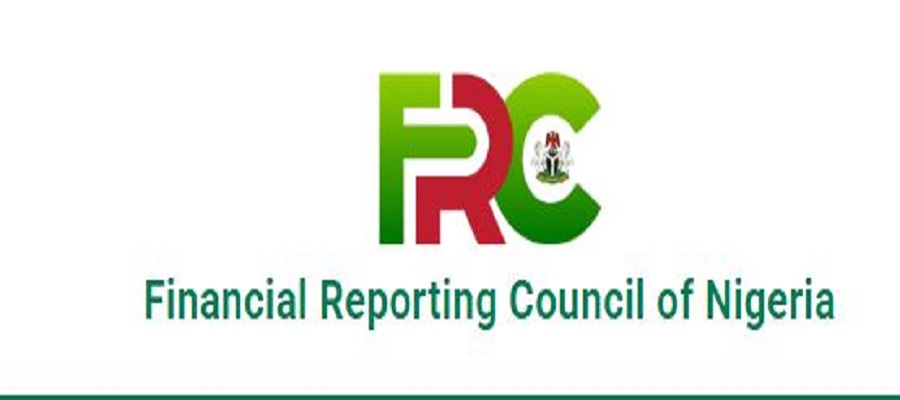General News
DHL Sees Opportunities in Complex African Market

With the growth of the e-commerce industry and the increasing ease of conducting business electronically globally, it isn’t surprising that more businesses are choosing to trade across borders to take advantage of the revenue-generating potential that export and import of goods offers.
While there are numerous exciting business opportunities – as international markets continue to express interest in local African products / services and vice versa – international trade remains a complex process, which if not managed correctly, can create unfavourable situations for businesses and their partners, particularly small to medium enterprises trying to take advantage of the global market.
This is according to Oliver Facey, vice-president, Operations at DHL Express Sub–Saharan Africa, who said that it is important for businesses to be aware of the diverse trade regulations, and implications of these, when moving shipments across the various borders in Africa and abroad.
Facey pointed to the latest World Bank Doing Business 2013 report which revealed that Sub-Saharan Africa boasts the largest improvement in the rankings from last year, as business regulatory practices in various countries converge and they narrow the gap with their European counterparts.
However, the region is still the worst-performing, highlighting the challenges that local businesses face in terms of understanding document requirements and customs procedures.
As a result, businesses need to have an understanding of customs requirements applicable to their product’s origin and destination, in order to minimise any delay and extra costs at border clearance which could adversely affect their profits and expected transportation service levels.
Facey offered a few pointers to local businesses to assist with a smooth shipment process.
“First and foremost, customs usually require the importer or exporter to register as an importer/exporter before transacting internationally. Following this, businesses need to ensure they have the correct paperwork.”
“Typical documents that are required includes certificates stating the proof of the products origin as some goods could attract preferred rates of duty depending on their country of origin. There are also goods that require inspection and release by other government agencies, such as The Health Department, so it is imperative to enquire whether the goods being shipped from specific countries require additional permits.”
Invoices also need to be provided and these need to be in a specific format and include the purpose for the product (commercial or non-commercial) and the proof of their values.
“Customs reserves the right to stop, detain and physically inspect any shipment entering or exiting the country. During this phase, they subject the clearance of the product to various checks, such as valuation, to determine whether the value paid to the supplier is infact the value declared for Customs purposes. There are legal, financial and service implications if these details do not correspond,” said Facey.
Commodities are coded by means of a tariff number and as a result, a Harmonised Tariff code will be assigned to the product, which is a code that determines the rate of duty payable on that specific commodity.
“Another aspect to consider is whether there are any special requirements for the specific country the product is being shipped to, such as temporary imports / exports and restrictions”, said Facey.
“There are prohibited and restricted goods that can only be shipped in and out of the country under a permit or license, such as plant products which require a phytosanitary certificate or medicine and scheduled substances which usually need a medical control council certificate.”
Facey said that to further guarantee a smooth shipment process, for both the business and customer, it is vital for companies to ensure traceability and transparency in the transportation process.
“Not only will this help keep the customer informed, but it will also assist the company prevent delays should there by a stoppage in the process. With the knowledge of a particular stoppage, a business can then help resolve the issue quickly and efficiently, as in some instances, the delay is likely solved by supplying extra data or forms.”
The speed of delivery needed for the shipment also needs to be considered when assessing the company’s transportation needs.
“Businesses must match the transport need to the needs of the customer, which can be categorized into the size, urgency, cost, speed and complexity of the shipment,” said Facey.
Due to the complexities of the procedures and processes, it is advisable to seek assistance from appropriate service providers that can support and advise according to a business’ individual needs.
“This enables good local knowledge and the assistance with the clearance process and procedures. They will also ensure that all requirements are met and understood before shipping, as well as manage expectations and navigate customers through some time very difficult procedures.”
“By fully understanding the processes and terminology involved with entering the different markets, African businesses can build a long-term foundation for even more successful international trade,” concluded Facey.
General News
NCS to Launch Electronic System for Cash Declarations at Airports

Nigeria Customs Service (NCS) is set to introduce an electronic declaration system to streamline and enhance compliance for travelers carrying cash into or out of Nigeria.

Speaking in an interview with the News Agency of Nigeria (NAN) in Abuja, Abdullahi Maiwada, NCS spokesperson, emphasized that the initiative aligns with efforts to strengthen Nigeria’s anti-money laundering framework and reinforce financial regulations.
“The Nigeria Customs Service (NCS) has announced the deployment of an Electronic-Currency (E-Currency) declaration form as part of its anti-money laundering measures for travelers carrying cash into and out of Nigeria,” NAN reported. The system will require travelers carrying amounts exceeding the legal threshold to declare them before arrival or departure.
Maiwada further explained the process, stating, “We have developed a system where, even before leaving your point of origin, you can scan a QR code, access the form, fill it out, and we will be able to see it from here.”
He noted that the initiative, set for rollout soon, will enhance monitoring and facilitate information sharing with relevant authorities.
Under the Anti-Money Laundering (Prevention and Prohibition) Act 2022 and the NCS Act 2023, travelers carrying over $10,000 (about N15.4 million) or its equivalent in negotiable instruments must declare the funds to Customs authorities.
To boost awareness, the NCS is working with airline operators to inform travelers through onboard announcements and plans to reinstate signage at airports and border points in English and French.
The move comes as part of broader efforts to tighten financial controls following a recent case at the Murtala Muhammed International Airport (MMIA), where Customs officials seized $578,000 from a passenger attempting to evade currency declaration regulations.
General News
Aquaterra Energy Secures Multi-million-dollar well Intervention Contract with Intrepid Energy in Nigeria

Aquaterra Energy, a leader in offshore engineering solutions, has secured a multi-million-dollar, multi-year contract with Intrepid Energy Limited (IEL) to deliver a bespoke subsea well intervention equipment package for a project in Nigeria.

Aquaterra Energy’s turnkey well access package will enable IEL to conduct intervention operations across multiple mature oil wells in the region, supporting enhanced reservoir production.
The contract includes the supply of a complete seabed-to-surface intervention system and package, spanning from the subsea tree to surface intervention equipment.
Key components include Aquaterra Energy’s TRT tieback tooling, which provides production bore and annular access, a lightweight well pressure control system, and an ISO 13628-7 qualified open water intervention riser with an integrated tensioning system. In addition to equipment provision, Aquaterra Energy will also deliver ongoing offshore engineering support throughout the project.
The 7- 3/8” lightweight well access solution, has been specifically engineered for deployment from jack-ups and lift boats. This innovative approach offers a cost-effective and operationally efficient alternative to floating vessels, reducing intervention costs while maintaining high safety and performance standards.
Andrew McDowell, Delivery Director at Aquaterra Energy comments: “Our expertise in offshore engineering allows us to develop tailored intervention solutions that address the operational challenges of subsea well access.
This system has been engineered for efficiency, ease of deployment, and safety, helping IEL optimise intervention activities across Nigeria while reducing costs. By delivering a complete, integrated package, we are simplifying complex operations and enabling operators to maximise production potential.”
Engr Seun Alonge, CEO at Intrepid Energy Limited adds: “Working with Aquaterra Energy marks a significant step forward for our intervention operations in Nigeria. Their specialised technology enhances our ability to execute intervention programmes efficiently, maximising performance across our assets.
By combining Aquaterra’s technical expertise with our deep understanding of the local operating environment, we’re confident this collaboration will enhance production outcomes and create lasting value for our operations in the region.”
The project is set to support intervention operations over multiple years, with Aquaterra Energy providing ongoing technical expertise, with a dedicated team of engineers providing ongoing service support throughout the project.
George Morrison, CEO at Aquaterra Energy: “Delivering reliable and efficient well access solutions for shallow water subsea operations is central to how we support offshore operators.
This collaboration with IEL reinforces our commitment to providing cutting-edge engineering solutions that enhance efficiency and reduce operational costs. With West Africa playing an important role in the global energy sector, we’re proud to continue supporting its offshore industry with our expertise and innovative technologies.”
General News
FG Halts Controversial FRC Dues amid Industry Outcry

Federal government has temporarily suspended the controversial annual dues imposed on public interest enterprises by the Financial Reporting Council (FRC) after fierce opposition from businesses.

Jumoke Oduwole, minister, Industry, Trade, and Investment, announced the decision during a Ministerial Consultative Meeting in Abuja on Wednesday.
The move follows mounting pressure from private sector groups, including the Nigeria Employers’ Consultative Association (NECA) and the Manufacturers Association of Nigeria (MAN), who slammed the Financial Reporting Council (Amendment) Act 2023 for burdening companies with excessive fees.
The Act mandates cumulative annual charges for non-listed entities and imposes a harsh 10% monthly penalty on unpaid dues, compounding until full payment, a provision that sparked widespread backlash.
At the meeting, major industry players like NECA, MAN, the Nigerian Association of Chambers of Commerce (NACCIMA), oil producers, and telecom operators warned that the fees would cripple businesses already struggling in a tough economy.
Oduwole clarified the suspension, stating, “The government has decided to direct the Financial Reporting Council to pause in the implementation of the new annual dues. You know that I am a lawyer, and a suspension request by the organised private sector would be in contravention of legislation duly passed by the National Assembly. A pause is an administrative process simply to review, in line with what we discussed today.”
She assured stakeholders that the halt would last no longer than 60 days, with a technical working group—including FRC officials and private sector representatives—set up to reassess the policy.
“We are a listening administration. The private sector has requested a range from three months to an indefinite suspension. We are not going to do that. So, at the most, 60 days is in my estimate. We are going to set up a technical working group comprised of the FRC and the organised private sector who have formally written in, and this will be reviewed,” Oduwole emphasized.

 Telecom3 days ago
Telecom3 days agoAgain, Labour Fumes, Threatens Shutdown of Telcos over Non-Implementation of 15 Percent Tariff Reduction

 News3 days ago
News3 days agoNNPC Ready to Go to Capital Market for IPO- CFIO

 E-Business3 days ago
E-Business3 days agoFG Launches Online Visa Approval Centre

 E-Business3 days ago
E-Business3 days agoQNET Disassociates From Fraudulent Academy in Abuja, Supports EFCC Arrest

 Telecom2 days ago
Telecom2 days agoIHS Nigeria Hosts Telecom Industry Stakeholders to Discuss Protection of Critical National Infrastructure in Lagos State

 E-Financial2 days ago
E-Financial2 days agoTitan Trust Bank Selects Oracle FSS for Core and Digital Banking Technology

 General News2 days ago
General News2 days agoNCS to Launch Electronic System for Cash Declarations at Airports

 News2 days ago
News2 days agoSanwo-Olu Hails Jumia for Giant Strides in Growing Nigeria’s E-Commerce Sector




















